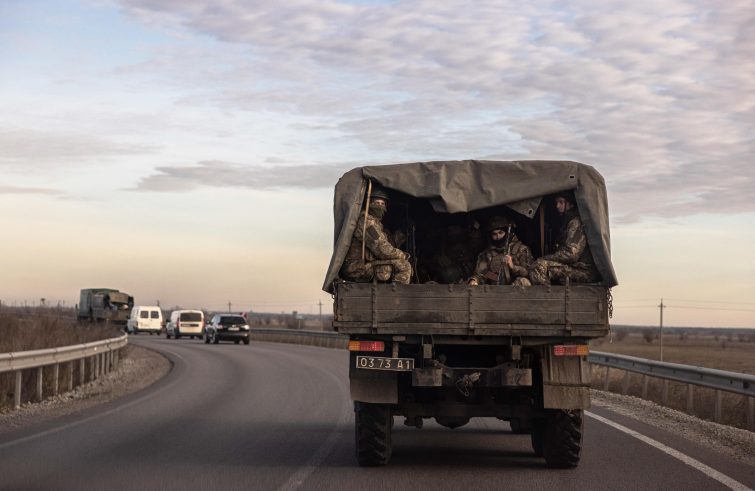
“The heinous war unleashed by the Kremlin despot concern us all. Not only is it a declaration of lethal hostility against Ukraine’s national independence, it also constitutes a direct attack on the heart of the international order: on its rules, its institutions and its underlying principles”, writes Vittorio Emanuele Parsi in his book “Il posto della guerra e il costo della libertà” (The place of war and the cost of freedom). Professor Parsi teaches International Relations at the Faculty of Political and Social Sciences at the Catholic University of the Sacred Heart in Milan, he serves as Director of the Graduate School of Economics and International Relations (ASERI) at the same university, and, inter alia, is a member of the Foreign Ministry’s Strategic Policy and Reflection Group. In his view, protecting democracy and freedom is crucial if we want to see any prospect of peace:
“If we fail to defend the future of democracy and freedom, no one else will. Like it or not, this is the essence of the war in Ukraine.”
Professor, what are the prospects for a solution to the conflict?
The possibilities are linked to whether Ukraine manages to convince Russia that it cannot win this conflict through military means. The Ukrainians’ best option is to reconquer the biggest part of its territory and at that point start to negotiate with the Russians based on their withdrawal to the border line they started from, which remains an illegal border line. How can anyone trust Putin, who lied about this war until a few hours before he started invading a brother country, unless there is concrete evidence of this kind of goodwill?
So does it make sense to talk about peace today?
It has meaning only if it is a peace with justice, a just peace and a lasting peace; an unjust peace is known as surrender.
What did Europe do wrong before February 24?
Europe wanted to believe that Russia would not spark off this conflict. Unfortunately, there were many signs, and detailed information to that effect was coming from the American services at least since December 2021. In fact, there were a series of political signals in this direction.
Europe foolishly underestimated the 2014 invasion, it increased its dependence on Russian gas, and then risked turning an economic vulnerability into political subjugation.
Failing to learn the Syrian lesson, when Russia intervened to punish the Hassad regime for using chemical weapons against its opponents, was a big mistake. Unfortunately, Russia was not alone in that and many noble-minded and well-intentioned people failed to understand that when a criminal realizes that crime pays, he will continue to commit it.
To what extent is democracy fragile today?
If Russia wins, democracy in Europe will have no future. We are not paying enough attention to this aspect. The safety of European democracy depends on the relations with the United States and on the fact that
we, the West, are living in a world whose rules, institutions, have been created for the purpose of making our world a safe place for democracy.
Should authoritarian powers prevail in the near future, they would erect institutions in such a way as to make the world a safe place for autocracies. If this fact is misrepresented, nothing else can be understood. Sometimes anti-Western sentiment prevails over the love for democracy and freedom.
What are the chances that Russia will become a democratic country?
I firmly believe that people in all countries want freedom and democracy. With Putin as ruler, there is not a chance. Mr Putin retrogressed what little democratisation had taken place in Russia before he came into power.
So, paradoxically, the possibility of rebirth stems from defeat.
Is it so odd? I don’t think so. Had Italy not lost World War II, it would have kept Mussolini in power until the dictator’s natural death. So we know what it means. I think Ukraine will represent for Russia what Greece represented for Mussolini: the beginning of the end.
What is China’s role?
Until now, China has demonstrated that it backs Russia, but it also showed that it set some limits that it will not overstep. The Chinese became annoyed with Putin’s falsehoods when he said: “I will settle the matter in a month’s time”. That was not the case.
They too are paying a price and they are asking themselves whether, faced with the evidence, they could alter the status quo. They understand that this situation is a curse for them too.
They also see that the Russian army is unable to accomplish its objectives despite its sheer brutality, compared to the Ukrainian army. And perhaps the Chinese are reflecting on the strength of their armed forces, for while China does have a huge military force, the last time it engaged in a battle was at the time of the Korean War.











